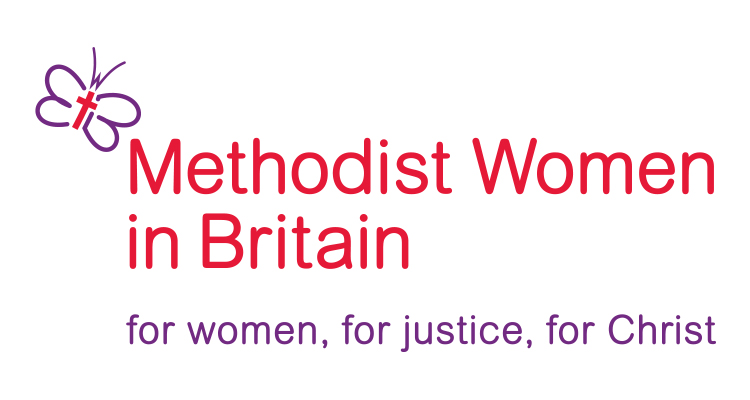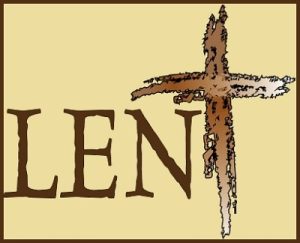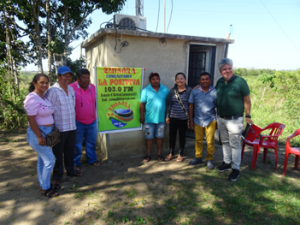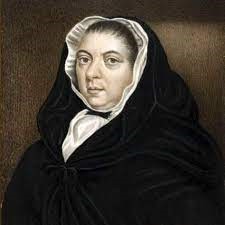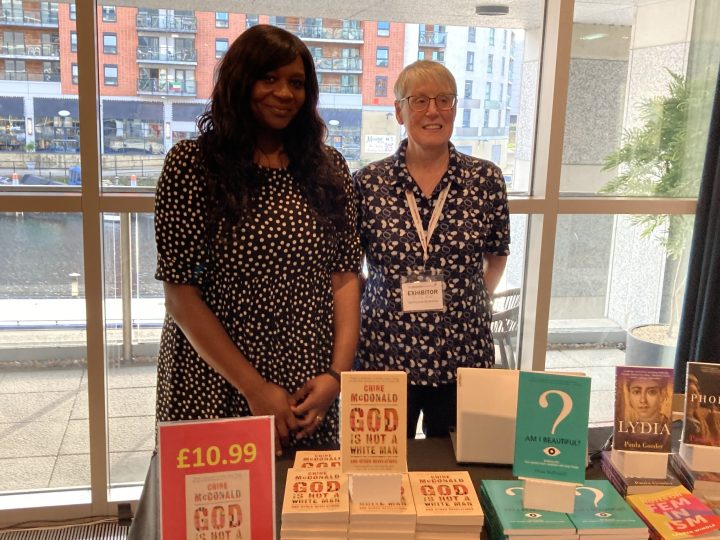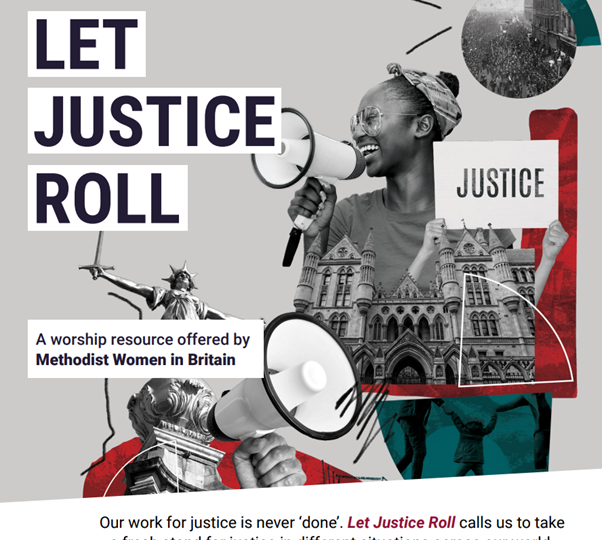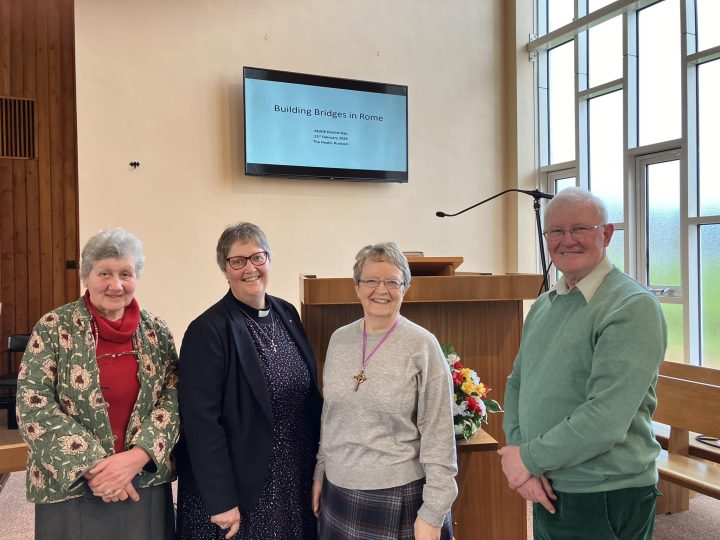Complete Lent Reflections (2) can be downloaded as a Word document
Lent Reflections 2024
Week 1: People made in the image of God
Bible Reading: Amos 5: 24
Methodist Women in Britain have prepared seven Lent reflections linking our Easter Offering Theme of “Let Justice Roll” (Amos 5 24) with the six Principles of Justice highlighted in ‘The Walking with Micah’ report by Rachel Lampard. These six principles for justice have been used to underpin our reflections. The full report can be found on the Methodist website.
Our first reflection is based on dignity and the concept of everyone being made in the image of God. We are called to be a justice seeking church. Promoting dignity, challenges some long established ways of acting and being, for individuals and churches. Exploring unconscious bias opens up opportunities to honestly address our relationship with others. We are called to do things with, rather than for others. It is about sensitivity in the way we interact with others and the overt and covert impact that our words and actions might have on others. It calls us to establish how we can offer effective help in a way that is appropriate and respectful, meeting needs rather than assuming we can know what would work for others without consultation. The Inclusive Language guide on the Methodist Website is very helpful in this regard.
Think of a time where you were taught a new skill perhaps in relation to your computer, mobile phone or learning to drive. Try to recall your feelings about the help or support you were offered and how that impacted on you at the time.
- As individuals and as church community, how do we provide an environment that celebrates the gifts brought through neurodivergence, dementia and children’s spirituality?
- If we accept that everyone is made in the image of God how does that affect the way in which we interact with groups in our society whose values and experiences may be different to ours?
- Lent can challenge us in relation to our personal prejudices and justifications. How do we gain insight into the structures in our society that keeps certain groups disadvantaged or vulnerable?
Prayer:
Creator God, we praise and thank you for the diversity of your people; each with their own skills, hopes and dreams. We thank you that we are all made in your image and that together we all make up your kingdom. Help us challenge injustice, to value one another and to see you in everyone we meet. Amen.
Week 2: Creation and Community
Micah 4:
Psalm 22:23-31
My visit to Colombia, was an eye opener. We visited poor indigenous communities, who received little support from the state. Civil war has affected every part of life in Colombia for the last 60 years, disproportionately impacting Afro-Colombian and rural communities causing 5 million people to be internally displaced. The women in those communities were unaware of their rights, afraid to speak out about injustice and some had been silenced by the military who had threatened to kill them: and indeed. that had happened!
CEPALC (Center for Social Communication in Latin America), an ecumenical organisation, founded by Amparo and Felix Beltran, and supported by the Methodist Church, was founded in 1978 to work exclusively for the impoverished communities in defence of their rights and dignity, training them in the management and appropriation of means of communication and in the values of Peace and Justice, following the message of active compassion taught by Jesus. They are currently working with Zenu indigenous communities on the Caribbean coast, with groups of young coal miners in Boyaca, in central eastern Colombia, and members of the families of guerillas demobilized in the peace agreements. To emphasise the transmission of their message, they have an online radio station ‘Encuentro Radio’ and have trained young people to broadcast and make videos about the rights of women, children, members of ethnic, sexual and social minorities etc., and respect for their bodies, as they are convinced that in order to achieve true peace, leadership must be empowered, as well as the social role of the most vulnerable groups in society, for without the restoration of the rights of these groups, the longed for utopia of being able to live in a country that is not dominated by hatred, violence, and social inequalities can never be achieved.
Small radio stations have been set up in some communities. I visited the one in San Andres, no bigger than a garden shed, yet the station had an audience of 70,000, promoting women’s rights, educating the male population, promoting the importance of community working together for the good of all. CEPALC make all their work an act, an expression of love.
Reflection:
- How can we promote the message of active compassion, taught by Jesus, in our communities?
- How can we make use of our local media – radio, social media, etc., to promote this message?
Prayer
Compassionate God, we are part of your wonderful creation. We thank you for the example and work of CEPALC. Help us to create communities where all are valued, where the message of your love is broadcast, so that our communities may grow in your love. Amen
Week 3: Bias towards the poor and marginalised.
Read: Luke 21: 1-4
Mary Bosanquet is one of the heroes of early Methodism. She came from a privileged background – her father was ‘Lord of the Manor of Leytonstone’ and her brother was a director of the Bank of England. But Mary never sat comfortably in all this. From an early age (possibly under the influence of a young Methodist servant) she took religion seriously and turned her back on the expectations of a fashionable London lifestyle. She found companionship with Wesley and his friends and committed to putting her faith into action.
She was lucky enough to have private means but lived very frugally so that she could use more of her money for good. With another of Wesley’s followers, she set up a home for destitute young women; when it got too expensive to live in London they settled in the countryside near Leeds. As the women moved on from Mary’s community, she set each of them up financially so they could make their way in the world.
When she was in her early 40s, she married the love of her life – the vicar, John Fletcher (it turned out they had been secretly in love with eachother for years). Fletcher was a great friend of Wesley and people expected him to take over the Methodist movement when Wesley died. Sadly, it was Fletcher who died, after only four years of marriage. Mary was now on her own in the rough tough world of Telford at the height of the social uproar of the industrial revolution. With John dead, she had to move out of the vicarage too. Wesley urged her to come and live with him and his mother in London where it would be safe, comfortable and companionable. But Mary refused. She said that her loyalty was to the people who lived amid the challenges of the rapidly growing town in a rapidly changing society.
Mary Bosanquet is rightly remembered as a great preacher who changed Wesley’s mind about women in the pulpit. But she is also remembered in Telford for the 30 years in which she continued on her own, serving the poor and teaching the children, changing the lives of those around her.
For reflection:
In the Covenant Service we hear:
Christ has many services to be done: some are easy, others are difficult; some bring honour, others bring reproach; some are suitable to our natural inclinations and material interests, others are contrary to both;
How easy do you find it to serve God where you are and not where you’d like to be?
Wesley said that the reason people do not understand the poor is because they do not spend enough time with them. We live in a rich country where poverty is rife. How can we be people who challenge the divide in our society?
Week 4: Upholding Justice
The story of Rizpah
Read: 2 Samuel 21:1-14
Then Rizpah the daughter of Aiah took sackcloth, and spread it on a rock for herself, from the beginning of harvest until rain fell on them from the heavens… After that, God heeded supplications for the land.
The story of Rizpah tells of a woman who spends her life navigating the edges of the royal family, as concubine and wife. As if that wasn’t difficult enough, she lives in a time (not uncommon in the Old Testament, or today) or war and famine. In this story, the war has brought famine. That is often what happens, but here it is unusual in that the famine has struck the victors.
It is the king’s responsibility to work out what has gone wrong for his people, and to try to put that right. The answer is clear – the past wrongs of a different generation have come home to roost. Atonement requires a high price – handing over 7 of the relatives of the previous king, Saul, for the enemy to do with what they will. We can imagine the agony of any mother who sees their son ripped from the community to face certain death, but the way Rizpah’s sons are treated is an abomination to God’s justice. They are staked out on the hillside to die.
At first reading, this is a powerful story of boundless grief. For the greater good, something has to be done. But it is Rizpah and her family that is left to pay the price. Her story cries out on behalf of all those parents who carry the unimaginable burden of the loss of a child. For many readers, that is enough.
But the story is about more than this. In fighting the darkness of her children’s deaths, she is also making a stand for what is right. God’s Law forbids the ill-treatment of the dead and human decency demands that the bereaved receive dignity and respect. King David has chosen to overlook this, so Rizpah’s public and rather dramatic mourning becomes a faithful protest against a ruler who is losing sight of God’s ways.
In our 24-hour news culture, the memory of the griefs and injustices of one day are often subsumed by the tragedies of the next. But Rizpah does not let this happen. She is incredibly brave. Alone in the wilderness, defending the bodies of her sons, she faces the elements, the wild animals and the wrath of the king. Yet she does not give up until justice is done. In her faithfulness to the dead, Rizpah reminds us of the women who stood bravely with the dying Jesus and went early to the tomb to anoint his body. But in her story we also hear echoes of courageous women throughout history whose private grief has cried truth to power.
And the story has an interesting ending. Although the young men’s sacrifice is part of solving the nation’s problems, it does not bring the end of the famine. That only comes when the bodies are returned to a proper burial with their ancestors. Peace and wellbeing are restored to the nation only when justice is fully done.
Prayer
Hold, O Lord, all those who mourn today; lighten the darkness of those in the depth of grief. Give grace to those who carry heavy responsibilities for the wellbeing of others; may the lamp of your justice ever illuminate their thought and actions.
Give to us all your strength and peace.
For further thought
Read the stories of other brave women whose mourning became a protest which brought change such as the Women’s March for Peace in Ireland.
Week 5: Peace and Liberation
Micah 6 8
He has showed you, O man, what is good – And what does the Lord require of you?
To act justly and to love mercy and to walk humbly with your God
This is such a well-known passage.
It reads like poetry. It reads like a statement of intent. It reads like a practical course of action. It reads like a good use of our gifts.
Matthew 25 40 – if we do anything for the least of these people it is as if we do it to the Lord.
For several years Methodist Women in Britain has been supporting small projects overseas enabling groups to provide self-help in their communities. Below are some examples over several years.
The Empowerment Gifts have made a difference to groups in
Kenya – supporting a garden project at a hospital
Sri Lanka – supporting Tamil widows to make goods to sell
Fiji – supporting the training of women affected by the issue of gender-based violence
Argentina – supporting baking and sewing ventures
Sierra Leone – supporting a group growing vegetables
Kenya – supporting a tailoring project leading to self-employment
The Gifts have helped people in those countries to become more independent, to earn a living and to help those in their communities.
SO WHAT DOES THE LORD REQUIRE OF US?
TO ACT JUSTLY
TO LOVE MERCY
AND WALK HUMBLY WITH HIM
TO ACT JUSTLY
When people are ill-treated because of disability or race –
Uganda – to help those with disabilities to discover what they can do and this, in turn, educates the community into awareness that everyone has a place.
TO LOVE MERCY
When we see people in need we want to help – We can’t help everyone but with a small Gift we can help those people make a difference in their lives and communities
Gaza – supporting deaf women and girls to make soap to provide an income.
TO WALK HUMBLY WITH GOD
And how do we help those who have very little? We can learn more about those communities and we can learn about how people can grow from the Gifts given to them from MWIB
Tanzania – supporting safe houses for women and girls to avoid F.G.M. and enforced marriages.
REFLECTION
- When there are so many areas of concern in our world, how do we work out what we can do?
- Could we start a prayer diary for the communities that we have given Empowerment Gifts to over the years?
PRAYER
Dear God,
There are so many areas of our world where there is conflict, we pray for peace and liberation for people affected by the difficult situations in their countries. We pray too for those facing difficult conditions in our own countries, wherever that may be. We pray for God’s blessing. Amen.
Sylvia White, MWIB Empowerment Gifts
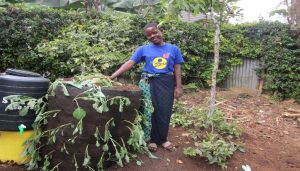 Patient of Kitchen Garden Project at her home, Kenya
Patient of Kitchen Garden Project at her home, Kenya
Week 6: Hope, honesty, truth
Bible reading: Acts 9:1-22
A popular definition of madness is doing what you have always done but expecting a different result. As Christians we believe that the world needs something different. All is not as God wants it to be. We pray that God’s kingdom will come, and that earth will be ‘as it is in heaven’. Is what we are doing now making the world more like the Kingdom of God. If not, how willing are we to do things differently?
This Bible story is very famous because it is about the dramatic conversion of Saul into the figurehead of early Christianity. But here I’d like to look at it afresh, through a slightly different lens. This is essentially a story about two people who decide to do things differently: one acts against his previous way of living while the other goes against his natural instincts.
If Saul were not famous but just some bloke in our community, we would think of this story of focusing on someone with violent and extreme opinions – a hatred of people who choose a different religion from him. He seems to find other lifestyles and worldviews threatening. You might be able to recognise someone like that in real life or in people you see on the television. In the book of Acts, people are even killed for thinking differently and Saul is there – he even looks after the coats! Suddenly he is hit by a blinding realisation that his way is not God’s way. Very few of us have Saul’s striking experience. Sometimes, recognising that God wants us to do things differently is very sudden but not so dramatic; sometimes, the realisation grows on us gradually.
Meanwhile, somewhere in Damascus, Ananias is living in terror. Not only is his community afraid of the coming persecution; now God has called him to reach out to his enemy in a spirit of love and reconciliation. What courage it must have taken to go out of his house and knock on Saul’s door. What do you suppose his wife said when he told her he was just popping out to see that Saul chappie? He goes on to be deeply important to Saul’s conversion, overcoming his fear to share the good news of Jesus.
Saul changes his way of thinking and turns towards God’s ways. Ananias overcomes his understandable fears to speak and act for God. What are we called to do, for ourselves and others? Where do old ways of thinking and reasonable anxiety hold us back? What needs to be different to make this world more like God’s world, and what are we going to do about it?
Prayer
Gracious Father, you are mine and I am yours. Grant me hope, that this world can be better and wisdom, to see how I can be part of that. Let me have the sharp vision of Saul and the patient courage of Ananias. In your name I pray. Amen.
To think about
One way that we can adjust the way that we see the world is by sitting with others from around the globe. This year, Methodist women from all over Europe are getting together in Porto. We will meet and worship and learn with eachother. The sessions look great but that’s not really the point – it’s about finding our common life together. Building fellowship that defies man-made boundaries and natural differences. Want to come? See the MWiB website for booking!
Week 7: Where next?
Micah 6.8
As we move towards the end of our journey of reflections through Lent our focus changes from reflection to seeking a route for onward travel. The message of Easter is transformative and challenges us to be proactive. It challenges us to explore external justice in our search for inner peace. It challenges us to the uneven and sometimes thorny path that links our faith with our actions as we seek to walk humbly and seek justice.
What are we being called to do to help create the right climate in our world that enables equal opportunities to flourish? How might we be part of a movement that empowers people and enables them to meet their full potential? How can we show loving kindness and act responsibly towards others travelling along the road?
The uneven path that we are all called to walk is in itself a challenge. The pains and blisters that we may develop should be treated respectfully and acknowledged but Easter also encourages us to lift our eyes and see beyond the dark and painful experiences to a life in all its fullness. Being part of creating that community where positivity and hope pushes us all towards real freedom takes time and often calls us to step well outside of our comfort zone. Setbacks and frustrations are inevitable as we focus on our goals.
The Easter message gives us confidence to step out in faith.
- What do you feel God is calling you to do in creating a community of positivity and hope?
- What gifts and graces do you feel you have been given to guide you?
Prayer:
Father God. We step out seeking to follow the words of Micah. We may feel unsure of the path or even the direction but trust that you will show us the way. Keep us grounded as we seek to play our part in creating a world where your peace and justice prevails. Amen
